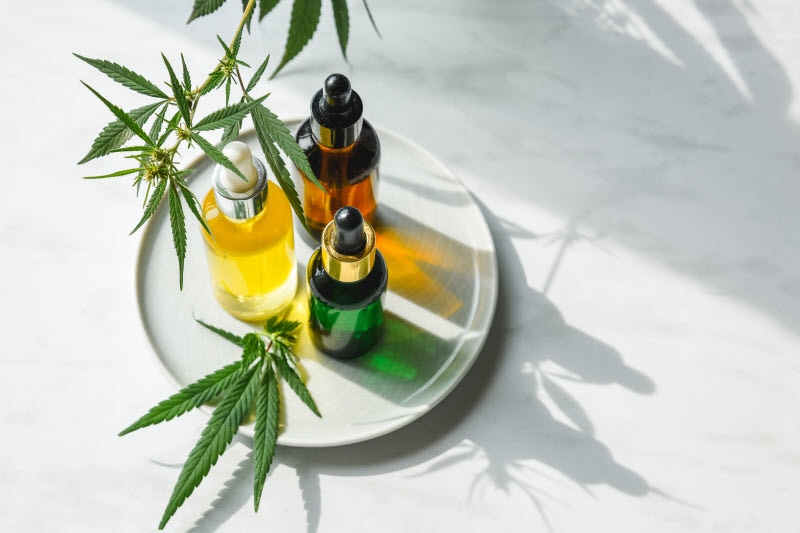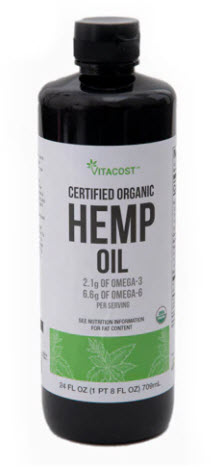CBD oil and
hemp oil both come from the hemp plant, which is a member of the Cannabis sativa species. Although they are derived from the same plant, they are not the same. This causes plenty of confusion regarding a product’s uses, benefits and efficacy.
While CBD oil contains the plant’s powerful cannabinoids, hemp oil does not. One is used therapeutically for issues like anxiety, and the other features healthy fats and a range of micronutrients. Knowing the differences between the two may save you some time, and confusion.

Hemp Oil vs. CBD Oil - The Main Differences
The difference between CBD oil and hemp oil is often confused, especially because there’s no concrete way to label these foods or products and the terms are often used interchangeably.
CBD (cannabidiol) is one of over 100 compounds found in the Cannabis sativa plant species. It’s used for its relaxing, sedative and anti-inflammatory properties. CBD oil is extracted from the plant’s flowers and leaves. The trichomes, which are the small, hair-like growths found on the plant, are what produce the cannabinoids (including CBD), terpenes and flavonoids.
Most CBD oils on the market are really hemp extracts that contain CBD, plus every other cannabinoid and terpene that’s found naturally in the plant’s leaves and flowers. In some cases, cannabinoids (like THC) are removed during the extraction process.
What’s called “hemp oil” comes from the seeds of the hemp plant. Also called hempseed oil, it may contain zero or only trace amounts of cannabinoids.
Benefit comparisons
There are different compounds and nutrients found in each type of oil derived from hemp. This contributes to their various (and differing) benefits.
CBD oil:
CBD oil is generally used therapeutically to ease the body and mind. The plant extract is usually diluted in an
MCT oil, like coconut oil or olive oil, because the fats support better absorption. The top
benefits of CBD oil include its ability to:
- Promote relaxation and better sleep†
- Support a healthy response to stress†
- Help to ease inflammation†
 Hemp oil:
Hemp oil:
Hemp oil is added to foods for its nutrition content and used topically for its soothing properties. It’s rich in omega-3 and omega-6 fatty acids, and is high in protein. It also features micronutrients including magnesium, phosphorus, potassium, zinc, folate, vitamin C, vitamin A and vitamin E. The top benefits of cold-pressed
hempseed oil include its ability to:
- Soothe and moisturizes skin
- Help hydrate hair
- Serve as a source of chlorophyll
- Provide all nine essential amino acids
Use comparisons
Hemp oil and CBD oil are generally used for different reasons. Both are available in oil form and have a similar color, but it’s important to understand how to use them properly, especially when it comes to CBD products.
Most CBD oils are available in 15-30 milliliter bottles that include a dropper. The dose per serving will vary, so it’s important to be aware of its potency. A lower dose of CBD is 5-10 milligrams per serving and it increases from there. The most popular (and effective) way to use CBD oil is placing it under the tongue for at least 30 seconds and then swallowing. This can be done 1-3 times daily, depending on your desired outcome. It can also be added to beverages, like water, tea or a smoothie.
CBD oil is used for a range of reasons, including boosting relaxation, promoting better sleep and easing pain.
† Everyone’s sensitivity to CBD and other cannabinoids is different, so using it in small amounts is the best way to start.
Hempseed oil is added to foods, like salads, sautéed vegetables and pasta sauces. Generally, using about 1-2 tablespoons is recommended. It’s best to drizzle it on prepared meals or cook it lightly. You don’t want to cook hemp oil in high temperatures, as it has a smoke point of 330 degrees Fahrenheit and can oxidative at temperatures beyond that.
Hemp oil is also used for beauty and body care. It’s found in face and hair serums because of its soothing and hydrating properties. It serves as a
natural moisturizer that can be used all over your body, especially in areas that are prone to dryness or irritation.
†
Side effects comparisons
For CBD oil, potential side effects depend on the person and dose. Higher doses can have a sedative effect and cause sleepiness. If that occurs, and it’s not bedtime, reducing your dose may help.
Hemp oil is generally considered safe when consumed in normal food amounts. Don’t cook it at high temperatures, it’s better to be used as a salad dressing or when cooking foods lightly. If you experience skin irritation from using hemp oil topically, discontinue use.
†These statements have not been approved by the Food and Drug Administration. These products are not intended to diagnose, treat, cure or prevent disease.
 Hemp oil:
Hemp oil:



